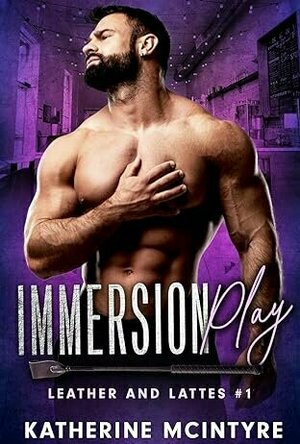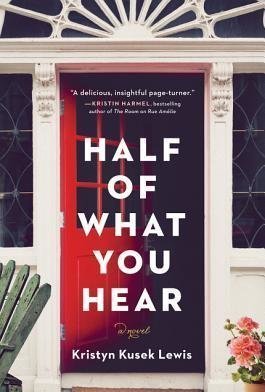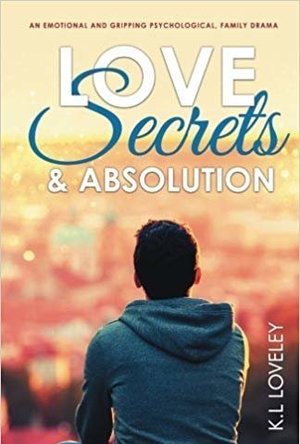
Sound Touch
Education and Entertainment
App
OVER 600,000 DOWNLOADS! JOIN THE FUN! YOUR KIDS ARE GOING TO LOVE IT! Trumpets, Harmonicas, Trains,...

Stick Pick
Education and Productivity
App
Join over 50,000 teachers, like EdTechChic, who says: "Say goodbye to your coffee can with popsicle...
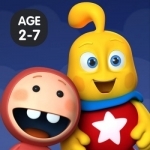
TopIQ Academy: Math & Reading Games for Kids
Education and Games
App
* 1000+ FUN & interactive learning skills & activities for 2 to 7 years old kids * Winner of the...
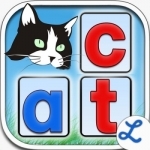
Montessori Crosswords - Fun Phonics Game for Kids
Education and Games
App
Based on the proven Montessori learning method, Montessori Crosswords helps kids develop their...
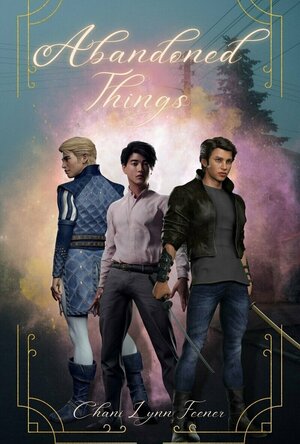
Abandoned Things
Book
Frankie is a fifth-year college student with a secret. He's the writer and creator of the popular...
MM Science Fiction Fantasy Enemies to Lovers Romance
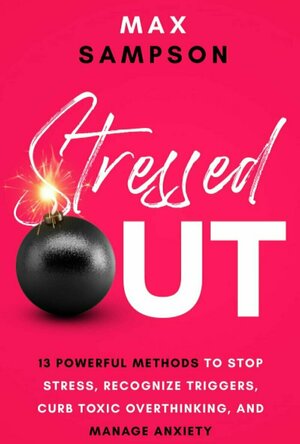
STRESSED OUT: 13 Powerful Methods to Stop Stress, Recognize Triggers, Curb Toxic Overthinking, and Manage Anxiety
Book
Stress could be slowly killing you… Here’s what you need to do to stop it: Do you get...
self-help
Debbiereadsbook (1656 KP) rated Immersion Play (Leather and Lattes #1) in Books
May 10, 2024
BUUUUUUUUUUUUUUUUUUUUUUUUUUUUT if you follow my reviews, you'll know I have a particular fondness for this author, having followed her for some time and I NEEEEEEEEEEEEEEEEEEEEEED to write a review to tell you about this book.
Because it's a cracker of a book! Full of love and smex and found families and disfunctional real families and all the geeky references that are McIntyre's trademark!
Micah runs from his home, literally in the middle of the night, back to San Fran and his previous college room-mate, Pixie. He lands the job at Whipped as barista, and is introduced to a world of kink. Parker is a Dom, a Daddy as well. But he refuses to let anyone into his heart after seeing what losing the love of his life did to his dad. Micah, though, gets under his skin and sneaks in. Knowing it can only end in heartbreak, they still embark on a rollercoaster of a relationship, til Micah pushes Parker away, and Parker has to make some difficult decisions.
What I loved about this was that it really did creep up on me! I was enjoying it, yes, but couldn't say I loved it. Then I have no idea what happened, who said what or anything, but I started to LOVE this book, I really did!
Whipped is a kink cafe, and the staff are extremely free with their affections and bodies. I liked that Micah knew this, and still went to that first play night with them all. He did some research too, and knew once he found out that Parker liked to spank, he wanted that, wanted Parker. I loved that parker was well aware that Micah was new to the screen, and led him accordingly, even if Micah was the brattiest brat he ever came across, and Micah really didn't know that about himself.
Scorching smexy scenes between Micah and Parker, with a connection rarely seen. Even for McIntyre, the connection runs deep and hot and I loved it!
As it is a kink cafe, there is lots of smexy scenes, and I loved the introduction to the staff and owners and their particular flavour of kink. I feel that all these people will have amazing tales to tell and I really look forward to them!
Micah and Parker's story has some difficult themes: death of a parent, withdrawl from life of another, obnoxious families, and all that entails. I loved how each topic was dealt with. Parker tries with his dad, he really does, but it's not until Parker lays it all out with his dad, that dad then tries too. Micah's family caused all his problems, caused him to run, but he always thought they would come round. It's not until his sister Eva, comes out to them, that they show their true colours and Micah decides enough is enough.
It's Eva who gets the next story, her and Pixie hit it right off when she visits Micah. I look forward to reading that book!!
I can't give it anything other than . . . .
5 full and shiny, and super smexy stars!
*same worded review will appear elsewhere
Hazel (1853 KP) rated Touching the Rock: An Experience of Blindness (Notes on Blindness Film Tie-in) in Books
May 23, 2017
It is not often a blind man writes a book, and “write” is a word used due to the lack of a better. John M. Hull gradually lost his sight, registering as blind in 1980, a couple of days before the birth of his son. Although anticipating the event, John struggled to come to terms with his new circumstances and adjust to a new way of living. From 1983 through to 1985, John recorded his thoughts on tape, in diary form, as a way to ascertain and understand his predicament. Originally titled Touching the Rock (1990), John’s book has been republished as Notes on Blindness after the release of the film of the same name.
Initially, John made recordings every day, dictating the everyday occurrences he encountered. Amazingly, despite his disability, John was able to continue as a university lecturer and delve deeper into the world of theology. The way John thinks things through as he speaks reflects his academic abilities. Although he may have despaired at the thoughts of not being able to see his children, he had a fairly positive outlook on life.
John’s thought capacity and religious ideology are evident in his assemblage of diary entries. As a blind person, he learns to see the world in an alternative way, and often feels closer to God as a result. Through these new experiences, John begins to see the light despite the darkness.
The metaphorical descriptions of blindness help the reader to understand the horror and difficulties not being able to see visually provokes. This is heightened by John’s recordings of the bad dreams he often suffers, in which he is able to see. His fixations on these dreams are assumedly a fascination with visual imagery, which he does not have access to in his waking life.
It is hard not feel sorry for John as he reports the conversations he has with his young children. The effort to communicate and play with them is far greater than a seeing parent. Remarkably, as John begins to adjust to his new lifestyle, his children take the situation in their stride.
Notes on Blindness is also an educational narrative for those without sight problems. John explains the things other people, in attempts to be helpful, do that result in making things far more confusing for John as he tries to navigate his way from one place to another. Despite what most think, blind people are fairly good at walking routes they are familiar with, and, with the help of a stick, can safely travel through new areas. Once people start shouting instructions, it is difficult to pay attention to the location and listen to everyone else at the same time.
John’s voice is extremely articulate, and his thoughts profound, which may suggest heavy editing when compiling the recordings into written form. However, as he is an academician, his eloquence of speech does not feel forced or faked.
Notes on Blindness remains the same as the original publication but with the added inclusion of an introduction by Cathy Rentzenbrink, and an epilogue by his wife Marilyn, written in 2016, a year after his death. These, the latter in particular, provide an insight into how John’s blindness affected those around him and emphasises what a truly remarkable man he was.
Of the many memoirs available on bookshelves today, Notes on Blindness is a truly unique publication. It is not telling a story, or recounting a well-lived life, but gives great insight into the world of the blind. As John’s thoughts were not originally recorded with intention of being available to everyone, they are all the more personal and honest, provoking emotion and providing the reader with a new way of seeing. It is a book that will stay with you for a very long time.
Kristy H (1252 KP) rated Half Of What You Hear in Books
Mar 20, 2019
This was a really engaging, easy-to-read book that expertly captured the small town dynamic. Bess was a likeable character, struggling as an outsider in her husband's town. She's trying to put a mistake behind her at her former job, giving her even more trust issues. The novel is told mainly from Bess' point of view, but we also get snippets of town gossip, too. Ugh, having lived in such a town, I can tell you that Lewis really gets it right. I was wrapped up in the story from the beginning and felt awfully sorry for Bess--moving away from all she knew and having to deal with those hateful small town busybodies (sometimes there's nothing worse, really).
"It's like living in Stars Hollow, the charming small town on Gilmore Girls... Although honestly, so far, Greyhill feels a little more Desperate Housewives. The star character being me."
I was initially drawn to reading this book because the fake town of Greyhill, as written, is practically in my backyard. It frequently mentions my hometown of Madison (which, believe me, *never* shows up in books - it's not that big), as well as where I currently live. Even better, Lewis captures both quite well, as well as the moneyed, snobby atmosphere of Greyhill that will be intimately familiar to anyone who lives in Virginia. There's always something fun about reading about a place (or places) you know. My favorite sports team even gets a mention!
Bess is also a very realistic mother. The book does an excellent job of capturing how hard it is being a mom when your kid is going through a hard time, for example. Honestly, it does a good job of portraying parenthood in general--it's real and true throughout. I very much appreciated that. None of the sugarcoated parent/child relationships we get in some books.
This one was not completely what I expected. While it's character-driven and portrays Bess' struggle to fit in in Greyhill, it is almost a mystery at times. You can't really trust what you read and it's twisty, with some surprises thrown in. It makes for a fast, interesting read that delves into the history of Greyhill and Bess' family.
Overall, this was a really captivating book. I enjoyed the characters and the story--and the setting was a real bonus. This is the first book I've read by Krusek Lewis, but I definitely would like to read more.
I received a copy of this book from the publisher, Harper Collins, via LibraryThing in return for an unbiased review - thank you!
Sassy Brit (97 KP) rated Love, Secrets and Absolution in Books
Jun 6, 2019
^^ Told from alternative viewpoints, Love, Secrets and Absolution is an emotional story revolving around the lives of a couple, Grace and Paul, who are trying to come to terms with the stresses and strains of bringing up an autistic child. But what makes this story different is how it’s set at a time which coincides with the Nottingham miners strikes of the 80s, where pit closures and pay restraints led to unofficial strikes, job losses and violence. Harsh times to say the least. This added a new dimension to the story, and of course, more pressure for Paul, and ultimately the whole family. They were terrible times in Britain, a lot of families suffered because of it.
^^ Right from the beginning we see young Alfie is different to other children. The author, K. L.oveley, helps show us this, by what I thought was a highly unusual technique- giving baby and toddler versions of Alfie his own voice.
^^ I must admit at first I was thinking, this doesn’t sound like a baby. After all, very young babies are not able to communicate in such a coherent manner. However, as I read further, I saw how Alfie’s voice as a child — seeing things differently from his POV — really helped to provide a deeper look into his inner thoughts and feelings. A fresh and unique approach, which revealed his own perspective of how he didn’t fit in with other kids, even if he was unable to understand the “why” himself. Very clever. It certainly made things clearer for me and highlighted aspects of autism I may have missed otherwise.
^^ Taking the time-period into consideration, I found the portrayal of the teachers and the way they behaved cruelly and professionally towards Alfie and Grace shocking, yet realistic. Back in those days many professionals were not trained to spot differences and learning difficulties in the way they are today. To outsiders who didn’t understand what Alfie was going though and thinking, he did just look like a trouble maker. Nowadays we know better and there is an ever-growing awareness and understanding of the many different spectrums of autism.
^^ Alfie’s father, Paul, may not have won the best dad of the year award, but I felt he was a realistic representation of a man living and working in a very masculine environment, where men were largely regarded as the breadwinners of the household and job scarcity was a huge issue. He didn’t know how to handle Alfie, and in a way you can’t blame him for that. Not everyone is capable of being a really good parent, especially when their own life has turned upside down in a blink of an eye.
^^ There’s also a really good story line around a girl called Magenta, which I felt helped strengthen both Alfie and Grace’s bond. A lovely touch. As was Grace’s newfound strength and courage, which really made this story become more than just gloom and doom. Her steadfast devotion to her son is both amazing and commendable, and I enjoyed seeing how she turned her life around.
Overall: This thought-provoking book is as much about relationships, as it is autism. We see the hopes and dreams of a young family shattered by a lack of communication, misunderstandings and even betrayal. Yet, despite all the struggles and heartache this family go through, we discover the true power of love; how it can heal, comfort and carry us forward through the toughest of times. A heart-warming, memorable and most satisfying read.
